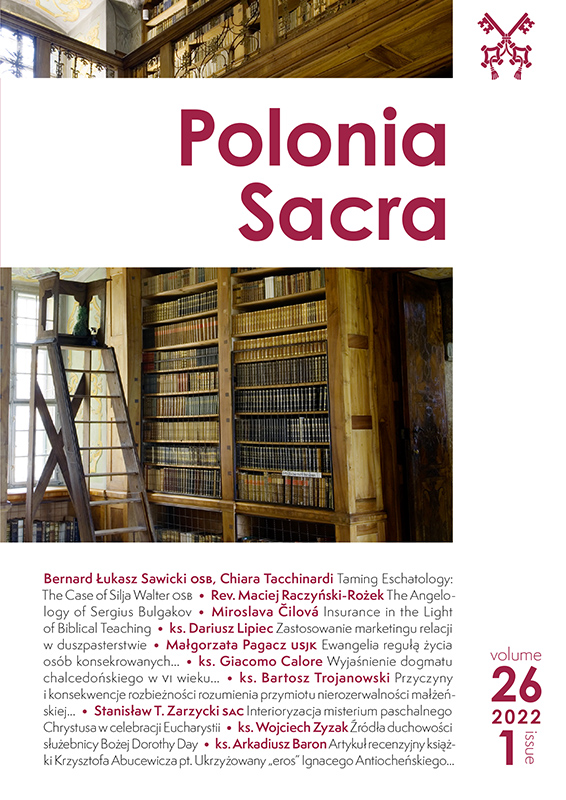Wyjaśnienie dogmatu chalcedońskiego w VI wieku.
The Clarification of Chalcedonian Dogma in the 6th Century: The Interpretation of Person and Nature by Theologians of “Neochalcedonism” According to Alois
Grillmeier
Author(s): Giacomo CaloreSubject(s): Christian Theology and Religion, Theology and Religion, Systematic Theology
Published by: Wydawnictwo Naukowe Uniwersytetu Papieskiego Jana Pawła II w Krakowie
Keywords: The Council of Chalcedon; Neochalcedonism; hypostasis; existential approach
Summary/Abstract: At the Council of Chalcedon (451), the Fathers introduced a clear and previously unknown distinction between the Christological concepts of person and nature. This contributed to various problems, the most important of which was the lack of a new definition of person. For this reason, the council became the subject of sharp criticism primarily from “moderate” Monophysites. In this article, with the help of Alois Grillmeier’s analysis in his work Jesus der Christus, the author presents the efforts of the two most influential theologians who defended and deepened the teaching of the Council within the framework of the so called “Neochalcedonism” in the sixth century, Leontius of Byzantium and Leontius of Jerusalem. Theses theologians developed the concept of person as the source of the nature’s existence, thus giving it an existential and primary meaning in relation to phýsis. The author explains how, based on this, they were able to fill in all the questionable deficiencies in the Chalcedonian definition.
Journal: Polonia Sacra
- Issue Year: 26/2022
- Issue No: 1
- Page Range: 121-140
- Page Count: 20
- Language: Polish

